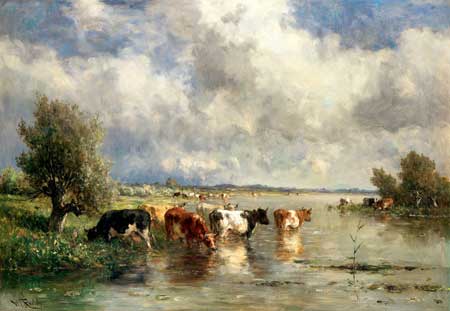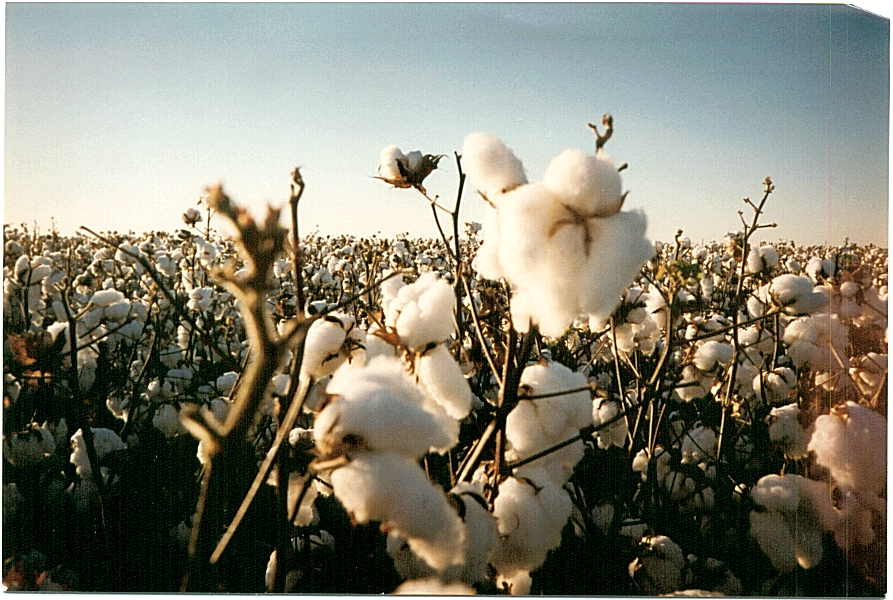 By Nick Li
By Nick Li
I feel sorry for World Trade Organization Director-General Pascal Lamy. He has one of the hardest jobs in the world – forging a multilateral agreement between 150 member countries that requires explicit consensus on a wide range of issues that are politically charged in all countries, while trying to comply with the broader goal of `development’ set out in Doha, Quatar 2001.
The negotiations hit setbacks in Cancun, 2003 and Hong Kong, 2005, resulting in a suspension of talks in July 2006 that lasted until this year. There have been a little bit of progress on the way – the EU agreed to end its export subsidies for Agriculture by 2013, pending the conclusion of talks, and the participants agreed to leave several contentious issues off the table, like government procurement and investment. But overall, the negotiations have fallen far short of what was promised. One result has been an increase in proliferation of bilateral trade agreements – Bush’s latest visit to Uruguay, aimed at cementing a bilateral trade agreement, is the latest example, and perhaps symbolic given Uruguay’s role as host of the last successful multilateral trade negotiations in 1994.
 The hardest part of Pascal Lamy’s job must be listening to all of the grandiose language of member countries, especially from the EU, always a little pompous and holier-than-thou except when it comes to sacrificing a few farmers for the benefit of millions, and the US, always a champion of free-markets everywhere except in states with a high ratio of senate seats to farmers. Like the UN Millennium goals, Kyoto treaty, and other lofty global initiatives, the Doha round has floundered on political realities that were evident from the start – the EU spends about 40% of its budget on agricultural subsidies, making a complete overhaul of the whole EU system a pre-requisite for the successful outcome to the Doha round. Likewise, the US President requires Fast-Track authority to seriously negotiate, and there is no way, with the upcoming Presidential elections, increasing public suspicion of trade agreements, and a historically unpopular US President that this will be renewed this year. This means that a "developmental" outcome to Doha requires not only consensus between all 150 member countries, but consensus WITHIN the two major players. There are few leaders principled enough in the world who are willing to sacrifice the political capital for the sake of a diffuse group of third world farmers and workers. The latest example of this is the high-level cotton negotiations that took place March 16th in Geneva. The main outcome of the meeting was a realization that the participants did not even know about the status of current assistance for cotton, including "what is directly and indirectly for cotton," "funds that are available, that are actually being used, and that have been spent," "projects and programmes introduced before and after 2004." The Cotton negotiations are symbolic of the whole round and have achieved a high profile because they were initiated at the request of a group of African countries – Benin, Burkina Faso, Chad and Mali – that see cotton as a highly promising crop but are unable to compete with heavily subsidized cotton from the US (40% of world cotton exports, and $3 billion in domestic subsidies – ). (The EU has cotton subsidies but grows very little. Most attention has focussed on the EU’s agricultural tariffs and anti-dumping claims). Cotton is also less controversial from a development perspective, since unlike food, poor people in cotton-importing developing countries will not be hurt as much by the loss of cheap, subsidized cotton.
The hardest part of Pascal Lamy’s job must be listening to all of the grandiose language of member countries, especially from the EU, always a little pompous and holier-than-thou except when it comes to sacrificing a few farmers for the benefit of millions, and the US, always a champion of free-markets everywhere except in states with a high ratio of senate seats to farmers. Like the UN Millennium goals, Kyoto treaty, and other lofty global initiatives, the Doha round has floundered on political realities that were evident from the start – the EU spends about 40% of its budget on agricultural subsidies, making a complete overhaul of the whole EU system a pre-requisite for the successful outcome to the Doha round. Likewise, the US President requires Fast-Track authority to seriously negotiate, and there is no way, with the upcoming Presidential elections, increasing public suspicion of trade agreements, and a historically unpopular US President that this will be renewed this year. This means that a "developmental" outcome to Doha requires not only consensus between all 150 member countries, but consensus WITHIN the two major players. There are few leaders principled enough in the world who are willing to sacrifice the political capital for the sake of a diffuse group of third world farmers and workers. The latest example of this is the high-level cotton negotiations that took place March 16th in Geneva. The main outcome of the meeting was a realization that the participants did not even know about the status of current assistance for cotton, including "what is directly and indirectly for cotton," "funds that are available, that are actually being used, and that have been spent," "projects and programmes introduced before and after 2004." The Cotton negotiations are symbolic of the whole round and have achieved a high profile because they were initiated at the request of a group of African countries – Benin, Burkina Faso, Chad and Mali – that see cotton as a highly promising crop but are unable to compete with heavily subsidized cotton from the US (40% of world cotton exports, and $3 billion in domestic subsidies – ). (The EU has cotton subsidies but grows very little. Most attention has focussed on the EU’s agricultural tariffs and anti-dumping claims). Cotton is also less controversial from a development perspective, since unlike food, poor people in cotton-importing developing countries will not be hurt as much by the loss of cheap, subsidized cotton.
 One of the problems that arose at the meeting is "that members’ views differ on how much subsidies in rich countries affect cotton prices globally." More generally, rich countries have moved the goalposts by taking a petty, legalistic approach to determining whether certain measures hurt developing countries or not. While this is typical of trade negotiations generally, it reflects the idea that trade liberalization is a zero-sum game, with tit-for-tat exchanges and reciprocity, belying the original "development" goal proclaimed in 2001. The other problem that arose concerns trade related development aid – "the mismatch between funds that donors are making available, and the requests of the recipient countries. Some African recipients said their needs were not being met; some donors said the recipients were not submitting enough suitable requests. Mr Lamy said participants have to dig deeper to find out why the gap exists." This is a typical feature of this kind of aid – often intended as a bribe to get poor countries to take on trade agreements that would damage their domestic interests, rich countries walk a fine line between providing aid that developing countries want (and that make them look like upstanding, global citizens concerned with the poor) and providing aid that might empower poor countries to compete more effectively against their producers.
One of the problems that arose at the meeting is "that members’ views differ on how much subsidies in rich countries affect cotton prices globally." More generally, rich countries have moved the goalposts by taking a petty, legalistic approach to determining whether certain measures hurt developing countries or not. While this is typical of trade negotiations generally, it reflects the idea that trade liberalization is a zero-sum game, with tit-for-tat exchanges and reciprocity, belying the original "development" goal proclaimed in 2001. The other problem that arose concerns trade related development aid – "the mismatch between funds that donors are making available, and the requests of the recipient countries. Some African recipients said their needs were not being met; some donors said the recipients were not submitting enough suitable requests. Mr Lamy said participants have to dig deeper to find out why the gap exists." This is a typical feature of this kind of aid – often intended as a bribe to get poor countries to take on trade agreements that would damage their domestic interests, rich countries walk a fine line between providing aid that developing countries want (and that make them look like upstanding, global citizens concerned with the poor) and providing aid that might empower poor countries to compete more effectively against their producers.
Perhaps the strangest example is aid intended to improve the negotiating capacity of poor countries – to my mind, the analogy is to a company that agrees to give money to a union so it can exact more concessions from the company. Because of the cognitive dissonance that this induces – much like the cognitive dissonance faced by a supporter of animal-rights and religious freedoms in the face of Kosher/Halal style animal execution – I am skeptical that the Cotton negotiations, like the Doha round in its entirety, will amount to anything but fluff. I’m sure we will get an agreement at some point, but it will be a face-saving compromise and not a major step forward towards free or fair trade.
